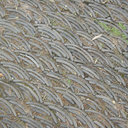Slovak
Albanian
Arabic
Armenian
Azerbaijani
Belarusian
Bengali
Bosnian
Catalan
Czech
Danish
Deutsch
Dutch
English
Estonian
Finnish
Français
Greek
Haitian Creole
Hebrew
Hindi
Hungarian
Icelandic
Indonesian
Irish
Italian
Japanese
Korean
Latvian
Lithuanian
Macedonian
Mongolian
Norwegian
Persian
Polish
Portuguese
Romanian
Russian
Serbian
Slovak
Slovenian
Spanish
Swahili
Swedish
Turkish
Ukrainian
Vietnamese
Български
中文(简体)
中文(繁體)
Journal of Ethnopharmacology 2019-Oct
Články môžu prekladať iba registrovaní používatelia
Prihlásiť Registrácia
Odkaz sa uloží do schránky
Najkompletnejšia databáza liečivých bylín podporovaná vedou
- Pracuje v 55 jazykoch
- Bylinné lieky podporené vedou
- Rozpoznávanie bylín podľa obrázka
- Interaktívna GPS mapa - označte byliny na mieste (už čoskoro)
- Prečítajte si vedecké publikácie týkajúce sa vášho hľadania
- Vyhľadajte liečivé byliny podľa ich účinkov
- Usporiadajte svoje záujmy a držte krok s novinkami, klinickými skúškami a patentmi
Zadajte príznak alebo chorobu a prečítajte si o bylinách, ktoré by vám mohli pomôcť, napíšte bylinu a pozrite sa na choroby a príznaky, proti ktorým sa používa.
* Všetky informácie sú založené na publikovanom vedeckom výskume





